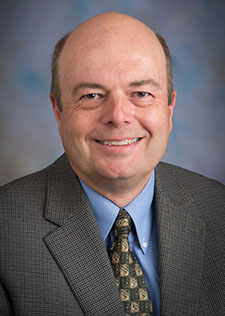Jeffrey L. Collett, Jr. – Professor

Email: collett@atmos.colostate.edu
Research and teaching website
Publications
Education
- Ph.D. in Environmental Engineering – 1989 – California Institute of Technology, Pasadena
- M.S. in Environmental Engineering – 1985 – California Institute of Technology, Pasadena
- S.B. in Chemical Engineering – 1984 – Massachusetts Institute of Technology, Cambridge
Career Overview
Professor Jeff Collett received an S.B. in Chemical Engineering from MIT and M.S. and Ph.D. degrees in Environmental Engineering Science from Caltech. Prior to joining the CSU Atmospheric Science faculty in 1994, he spent two years as a postdoc in the Laboratory for Atmospheric Physics at ETH-Zurich and three years as an assistant professor at the University of Illinois in the Department of Civil and Environmental Engineering and the Institute for Environmental Studies. Collett served as head of the CSU Department of Atmospheric Science from 2011-2022. His interests focus on process-oriented field research, instrument development and environmental chemistry. Many of his current interests concern the characterization of unconventional sources of air pollution, including oil and gas development, agriculture, and wild and prescribed fires, areas of particular public policy interest.
Teaching Interests
- Atmospheric chemistry
- Air quality
- Air pollution measurement
Research Interests
Collett’s research interests include pollution processing by clouds and fogs, nitrogen deposition, aerosol chemistry, air quality impacts from unconventional oil and gas development, emissions from wild and prescribed fires, precipitation chemistry and physics, dew chemistry, bi-directional exchange of ammonia between the atmosphere and surface, regional air quality, aerosol impacts on visibility, and instrument development.
Recent studies have characterized (1) emissions of air toxics, ozone precursors, and methane from specific processes (drilling, fracking, flowback and production) associated with unconventional oil and gas development; (2) the increasing contributions of ammonia to reactive nitrogen deposition in the Rocky Mountain region and across the U.S.; (3) contributions of biomass burning to reactive nitrogen and brown carbon; (4) the organic chemistry of clouds and fogs; (5) impacts of oil and gas development on fine particle and haze formation in the Bakken oil patch; (6) the role of dew as a temporary, nighttime reservoir for atmospheric ammonia; and (7) international air quality issues in China and Korea.
Collett’s group has conducted field studies of air quality and atmospheric chemistry at more than 40 locations in the U.S., Asia, Europe and South America. In addition to two well-instrumented mobile air quality sampling laboratories, Collett oversees extensive laboratory facilities for the analysis of atmospheric samples by a variety of instrumentation including IC, HPLC, LC/MS, PTR-MS, GC/MS, AMS, PILS, TOC and OC/EC analyzers.
Research Sponsors
- National Science Foundation
- U.S. Environmental Protection Agency
- National Park Service
- Natural Resource Conservation Service
- Colorado Department of Public Health and Environment
- USDA
Awards, Honors, and Positions
- Fellow, American Meteorological Society
- Office of Naval Research Young Investigator Award
- Engineering Faculty Award of Excellence
- Atmospheric Science Outstanding Professor of the Year (teaching award)
- Scott College of Engineering Abell Outstanding Faculty Research Award
- USDA Agricultural Air Quality Task Force
- Chair, AMS Atmospheric Chemistry Committee
- Board of Directors, International Fog and Dew Association
- Fellow, Cooperative Institute for Research in the Atmosphere (CIRA)


